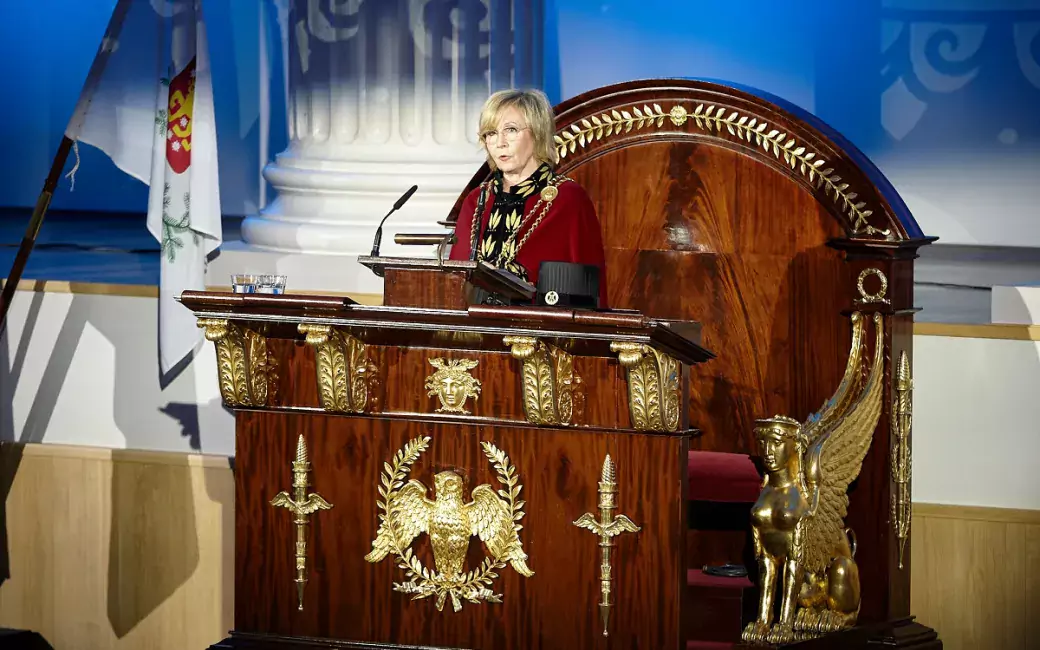In her speech at the opening ceremony of the academic year, Rector Sari Lindblom of the University of Helsinki highlighted the significance of universities and research-based knowledge amid societal upheaval.

Speaking at the opening ceremony of the academic year at the University of Helsinki, Rector Sari Lindblom highlighted the major societal changes that have reshaped Europe in recent years. Among other things, the refugee crisis, Brexit and the worrying developments in the rule of law in Hungary and Poland have put a strain on our continent. Europe's unity has also been threatened by the global coronavirus pandemic and Russia's attack on Ukraine.
"Crises always put the core of the community, its values and identity, to the test. In the middle of uncertainty and transformation, universities hold a key role in evoking hope. We have at our disposal the power of research-based knowledge, which gives us a role in guiding the future," Lindblom notes.
For centuries, universities have unwaveringly continued to work for the benefit of societies in the middle of wars, political conflicts, epidemics and many other crises affecting our communities. Rector Lindblom presents Bildung as a response to the challenges of our time.
"Bildung is both one of the values and a core duty of the University of Helsinki, requiring active action from us. New research-based knowledge shapes our worldview, which is why Bildung too evolves with the times. Bildung is a pool of knowledge and skills enabling us to act and solve problems," Lindblom says.
According to Lindblom, Bildung as action is about, for example, continuous learning and the development of skills throughout life. It is also about public engagement: highlighting your research in public discussion, collaborating with decision-makers and promoting science and research.
Lindblom points out that the spark for advanced education stems from curiosity.
"When our researchers work to improve urban air quality or look for sustainable methods in food production, that is Bildung founded on curiosity. The inspiration to discover and develop something new is more than momentary insights. In solving global challenges with the help of science and research, we are looking years and decades into the future," Lindblom says.
"Bildung is the only renewable resource that is entirely in our hands"
Rector Lindblom emphasises that Bildung needs resources to make a difference.
"If we nurture it with determination, it will thrive. Bildung is the only renewable resource that is entirely in our hands. We must safeguard high-quality research and education based on it."
Lindblom highlights the importance of boosting competence levels in ensuring Finland's competitiveness and success.
"Finland needs more highly educated talent. The number of student places in higher education institutions especially in the Uusimaa region must be increased, and the necessary funds must be allocated. Improving competence levels requires the long-term strengthening of educational resources with a persevering outlook," she states.
Reliable university funding ensures the freedom and impact of research and strengthens the autonomy of universities.
"If the Finnish funding base can be secured for the long term, we will also be an attractive target for international research funding," Lindblom points out.
"A predictable and long-term approach to science and education policy also guarantees our ability to bear responsibility for the development of European competence. "
***






